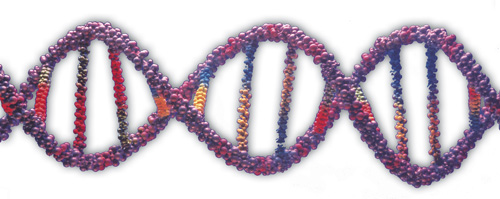|
[home] [subscription form] [cover story] [introduction] [people and places] [medical spa destinations]
|
||

VOLUME 2007 chapter 3
Obesity and Disease Risks Increase After Menopause
Nearly two-thirds of American women are overweight or obese. Postmenopausal women thus are a particularly vulnerable population, facing the health consequences of excess weight and the multitude of health problems with which it is associated. Postmenopausal women are at increased risk of obesity and its associated chronic health conditions, including heart disease, high blood pressure, diabetes, sleep apnea, cancer, osteoarthritis, and mental health problems.
[Dennis KE."Postmenopausal Women and the Health Consequences of Obesity." Journal of Obstetric, Gynecologic, & Neonatal Nursing. 36 (5), 511–519. doi:10.1111/j.1552-6909.2007.00180.]
Dr. Klatz observes: "Women are at greater risk for being overweight/obese as compared to men, and women tend to experience age-related weight gain. As a result, they increase their risk of developing a host of physical diseases, many of which ultimately may significantly and negatively impact quality of life."
In Women, Slowing Metabolism Associated with Increased Disease
Two recent studies demonstrate the role of diet and weight and the onset of disease in aging women. An unwitting contributor to this relationship is the role of slowing metabolism, which triggers unwanted weight gain – as well as the associated medical problems (see preceding news summary).
A National Cancer Institute (Bethesda, MD, USA) involving more than 99,000 women tracked weight and body measurements at ages 18, 35, and 50. The women also reported any diagnosis of breast cancer. Women who were not overweight/obese at age 18 but were considered overweight at age 35 and 50 had almost 1.5-times the risk of developing breast cancer (as compared to women who maintained a steady normal weight). [Ahn J, Schatzkin A, Lacey JV Jr, Albanes D, Ballard-Barbash R, Adams KF, Kipnis V, Mouw T, Hollenbeck AR, Leitzmann MF. "Adiposity, adult weight change, and postmenopausal breast cancer risk."
Arch Intern Med. 2007 Oct 22;167(19):2091-102.]
New analysis of data from The Women's Health Initiative Dietary Modification (DM) Randomized Controlled Trial found that women eating a lower-fat diet was 40% less likely to develop ovarian cancer (as compared to women eating a regular diet). In addition, the women who started with the highest fat intake and changed to the lower-fat diet had the greatest reduction in ovarian and breast cancer risk. [Prentice RL, Thomson CA, Caan B, Hubbell FA, Anderson GL, Beresford SA, Pettinger M, Lane DS, Lessin L, Yasmeen S, Singh B, Khandekar J, Shikany JM, Satterfield S, Chlebowski RT. "Low-fat dietary pattern and cancer incidence in the Women's Health Initiative Dietary Modification Randomized Controlled Trial."
J Natl Cancer Inst. 2007 Oct 17;99(20):1534-43. Epub 2007 Oct 9.]
Remarks Dr. Goldman: "Substantial health benefits occur with regular physical activity that is aerobic in nature (such as 30-60 minutes of brisk walking, 5 or more days of the week). Additional health benefits can be gained through greater amounts of physical activity, but even small amounts of activity are healthier than a sedentary lifestyle. Regular exercise in middle age can help men and women their healthspan and lifespan."
Alzheimer's - Herpes Virus Link
In lab tests, Ruth Itzhaki of Manchester University (United Kingdom), and colleagues, found that brains infected with the herpes simplex virus, HSV-1, also had elevated levels of the beta amyloid protein characteristic of Alzheimer's disease (AD). Previous research has found that HSV-1 is found in the brains of up to 70% of people afflicted with AD. Researchers from the University of Rochester Medical Center (New York, USA) found the HSV-1 virus is more likely to cause a problem in people who carry a mutant version of the ApoE4 gene, which is carried by the vast majority of AD patients. [Itzhaki RF, Wozniak MA. "Viral infection and cognitive decline." J Am Geriatr Soc. 2007 Jan;55(1):131.]
Comments Dr. Klatz: "Currently, about 2.4 million Americans, or about 10% of the population age 71 and up, has AD. The discovery of the link between HSV-1 and AD heralds a significant new research opportunity for a vaccine to protect against a possible viral cause of Alzheimer's."

